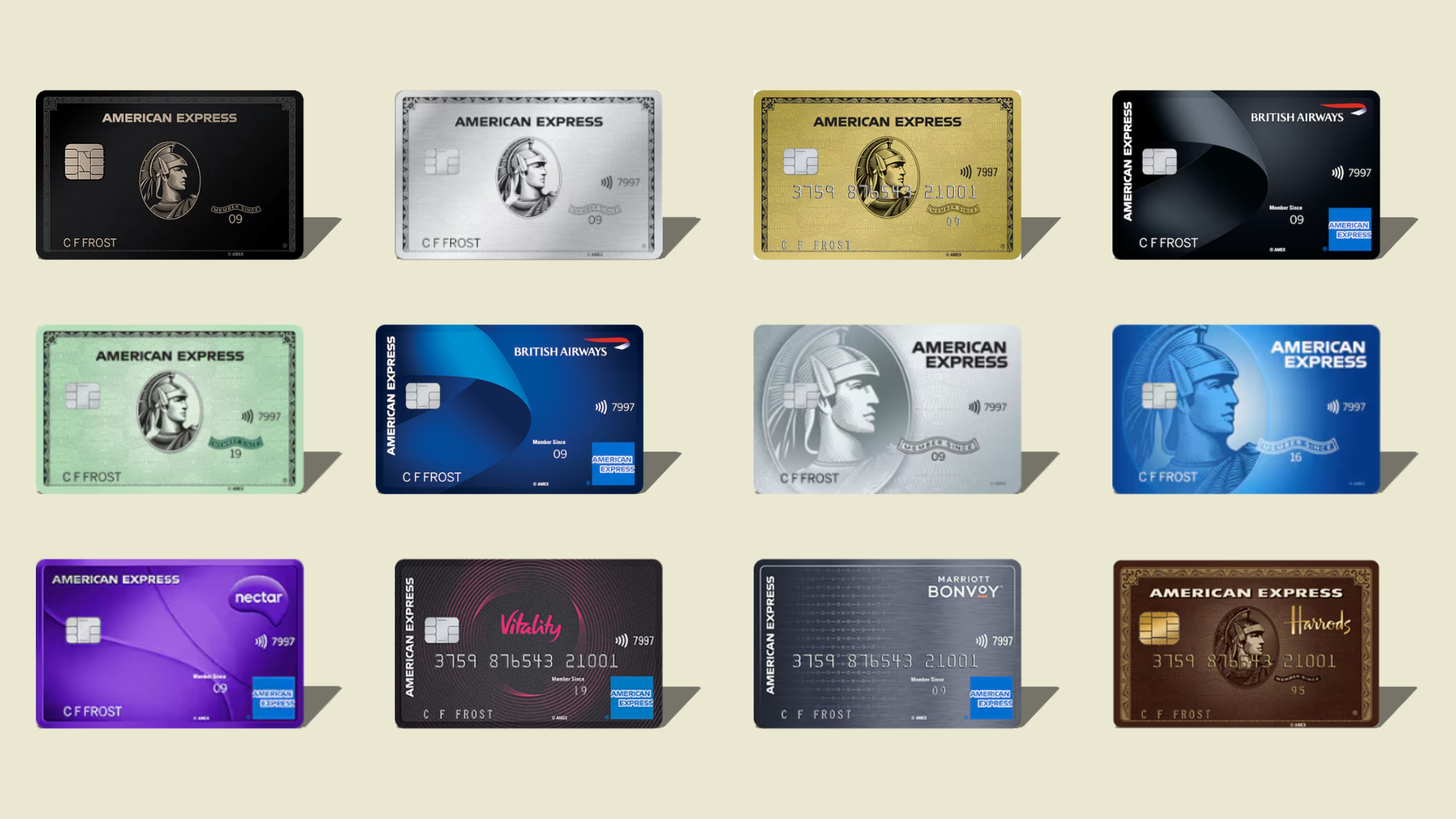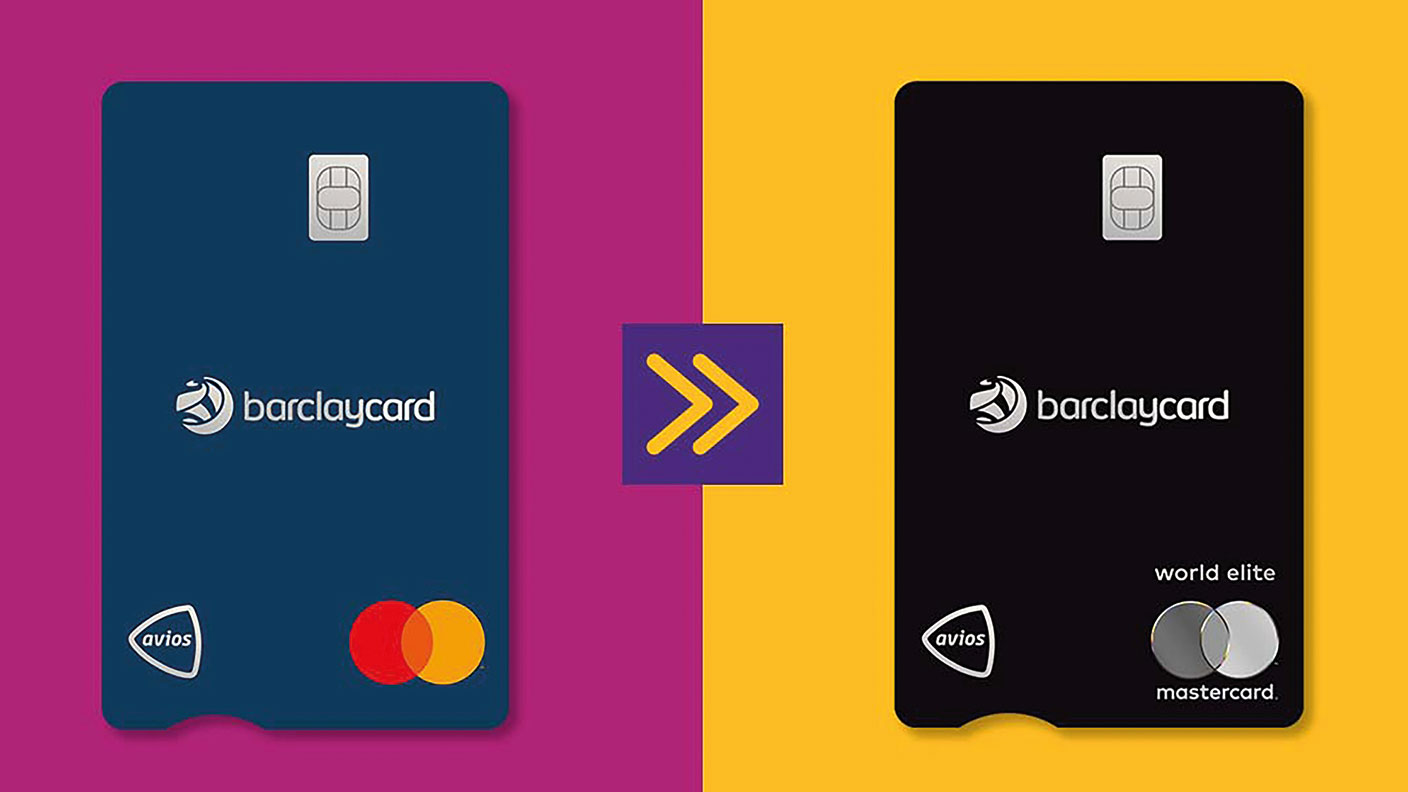One card to rule them all
If you’re tired of carrying around half a dozen different credit and debit cards, the Curve card could provide the solution, says Ruth Jackson.

Get the latest financial news, insights and expert analysis from our award-winning MoneyWeek team, to help you understand what really matters when it comes to your finances.
You are now subscribed
Your newsletter sign-up was successful
Want to add more newsletters?

Twice daily
MoneyWeek
Get the latest financial news, insights and expert analysis from our award-winning MoneyWeek team, to help you understand what really matters when it comes to your finances.

Four times a week
Look After My Bills
Sign up to our free money-saving newsletter, filled with the latest news and expert advice to help you find the best tips and deals for managing your bills. Start saving today!

If you're tired of carrying around half a dozen different credit and debit cards, you might want to consider a new card that aims to replace them all. The Curve card allows you to combine all your Visas and Mastercards (not American Express) via one app. Then you simply do all your shopping with the Curve card, assigning the spending to whichever of your cards you want. It is a debit card, so you can use it everywhere, but after you've made your purchase you can assign this to a credit card if you want. So if you have a cashback or rewards credit card, you can earn even in places that don't accept credit cards. You can also change which card you use for a payment up to two weeks after.
If you lose your Curve card, you can lock it via the app, and then unlock it later if you find it. The details of all your linked cards aren't stored on the Curve card or the app, so thieves wouldn't be able to access all your card information.There are some drawbacks though. First, you'll lose your Section-75 consumer protection. Usually, if you pay with a credit card and there is a problem, you can go to the card firm for redress. Using Curve invalidates this.
Also, if you have a rewards card (see below) that gives you different levels of cashback or points depending on where you are spending, you'll lose out with the Curve card. All transactions will be listed as going to Curve on your credit-card statements. For example, if you have a John Lewis card that gives one point for spending at Waitrose and John Lewis and half a point for spending elsewhere, you would only ever earn half points.
MoneyWeek
Subscribe to MoneyWeek today and get your first six magazine issues absolutely FREE

Sign up to Money Morning
Don't miss the latest investment and personal finances news, market analysis, plus money-saving tips with our free twice-daily newsletter
Don't miss the latest investment and personal finances news, market analysis, plus money-saving tips with our free twice-daily newsletter
The Curve card also won't suit big spenders. It has a daily spending cap of £2,000, a monthly limit of £5,000 and a maximum £10,000 in a year (though these limits go up once you've "cultivated a spend history" with the company). Finally, don't use the Curve card abroad you'll be charge 1% on top of the exchange rate for purchases and there is a £2 charge to withdraw cash.
Three of the best cards for earning rewards
Credit-card rewards are getting stingier due to restrictions on fees, but there are still a few good deals.
American Express remains the top choice for anyone who wants to earn as they spend. The Platinum Everyday card pays 5% for the first three months on up to £2,000 of spending. Then the rate falls to 0.5% on the first £5,000 spent per year, and 1% above that. Pay £25 a year and you can get the Amex Platinum cashback card. This pays 5% on up to £2,500 in the first three months, then up to 1.25% after that (so upgrading is worth it for big spenders).
If you are loyal to Asda, John Lewis or Amazon, then it is worth looking at their own reward cards. An Asda Money card gives 1% cashback on shopping with them (payable in Asda vouchers) and 0.5% elsewhere. John Lewis' Partnership Card rewards you with one point for every £1 spent at John Lewis or Waitrose, and one point for every £2 spent elsewhere. Each point is worth a penny in John Lewis gift vouchers, so it's the same cashback rate as the Asda card. The Amazon Platinum pays a voucher cashback rate of 0.75% on Amazon purchases and 0.5% elsewhere.
The British Airways Amex card gives you 5,000 bonus Avios points (which can be spent on things like hotels and flights) if you spend £1,000 in the first three months, plus one point per £1 spent. Spend more than £20,000 in a year and you'll get a companion ticket. Pay the £195 annual fee and you can get the BA Premium Plus Amex card. This gives 25,000 bonus Avios points if you spend £3,000 in the first three months and 1.5 points per £1 spent. Spend £10,000 a year and you get a free companion ticket.
Pocket change... how to exchange your bitcoin for soap
Bad news for those who took out buy-to-let mortgages between 2014 and 2016, says the Financial Times. Research by S&P Global Ratings found that 60% of buy-to-let loans taken out during these years will "effectively become loss-making", as higher-rate tax relief on mortgage interest is phased out. Those taking out loans during this particular three-year window are especially "vulnerable" because loans were underwritten in a low-interest rate environment with a minimal stress test on the assumed interest rate; and these landlords are unlikely to have benefited from much rental inflation during those years, so won't have much surplus cash.
The introduction of stricter mortgage-lending rules has led to a rise in specialist lenders offering niche mortgages, says The Sunday Times. Holmesdale Building Society, for instance, offers a mortgage designed for unusual homes, including old windmills, while Metro Bank offers a "generous multiple of 5.5 times salary" for "fully qualified" lawyers, accountants, doctors and actuaries. Scottish Widows offers a preferential rate of 1.54% fixed for two years for vets and dentists with a 40% deposit. Finally, Market Harborough Building Society has a special "divorce" mortgage that "factors in" money you'll receive from the sale of your marital home.
Bitcoin may be hugely popular among speculators, but using it as a currency is a little more problematic, says The Daily Telegraph. "Transaction fees are high, processing times can be lengthy and price fluctuations pose problems for both sellers and buyers." So who accepts bitcoin? The online shops of second-hand chain CeX and cosmetics company Lush, hotel and flight-booking service Expedia and that's about it. Beyond that, Microsoft customers can redeem Bitcoin to add funds in pounds to their online account, which can then be used to buy games, apps and films in the Windows and Xbox stores.
Get the latest financial news, insights and expert analysis from our award-winning MoneyWeek team, to help you understand what really matters when it comes to your finances.

Ruth Jackson-Kirby is a freelance personal finance journalist with 17 years’ experience, writing about everything from savings accounts and credit cards to pensions, property and pet insurance.
-
 Should you buy an active ETF?
Should you buy an active ETF?ETFs are often mischaracterised as passive products, but they can be a convenient way to add active management to your portfolio
-
 Power up your pension before 5 April – easy ways to save before the tax year end
Power up your pension before 5 April – easy ways to save before the tax year endWith the end of the tax year looming, pension savers currently have a window to review and maximise what’s going into their retirement funds – we look at how
-
 What are British Airways Amex companion vouchers, and how do they work?
What are British Airways Amex companion vouchers, and how do they work?American Express customers with British Airways credit cards can effectively double the value of their Avios points by using a companion voucher. We look at what they are, and how you can use them.
-
 American Express introduces 'Plan It' payment instalment option
American Express introduces 'Plan It' payment instalment optionNews Amex users can now split parts of their credit bill into further instalments. Is it worth it?
-
 Which is the best American Express credit card?
Which is the best American Express credit card?American Express credit cards can help you earn cashback or reward points on everyday spending, but which card is the best for you? We compare the options
-
 How to earn cashback on spending
How to earn cashback on spendingFrom credit cards and current accounts to cashback websites, there are plenty of ways to earn cashback on the money you spend
-
 Slash the cost of your next holiday with Avios points
Slash the cost of your next holiday with Avios pointsMiscellaneous Avios points can cut the cost of travelling - we explain how using the right credit card and bank account can help you quickly build up thousands of Avios points.
-
 The best credit cards for cashback
The best credit cards for cashbackThe best credit cards for cashback can help you earn rewards on everyday spending. We list some of the top deals on the market
-
 The best credit card for collecting air miles
The best credit card for collecting air milesAdvice The Barclaycard Avios and Avios Plus are more widely accepted than Amex, says Ruth Jackson-Kirby.
-
 Amazon signs a truce with Visa on credit card fees
Amazon signs a truce with Visa on credit card feesNews Amazon has reached an agreement with Visa that allows its customers to continue paying by Visa credit card. Saloni Sardana explains what's happened and why.